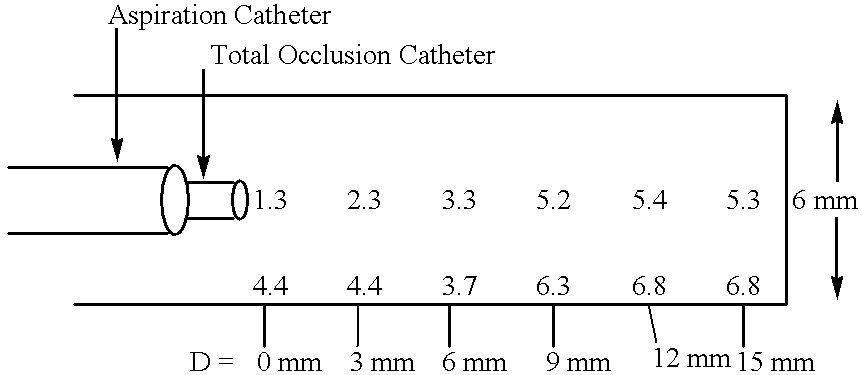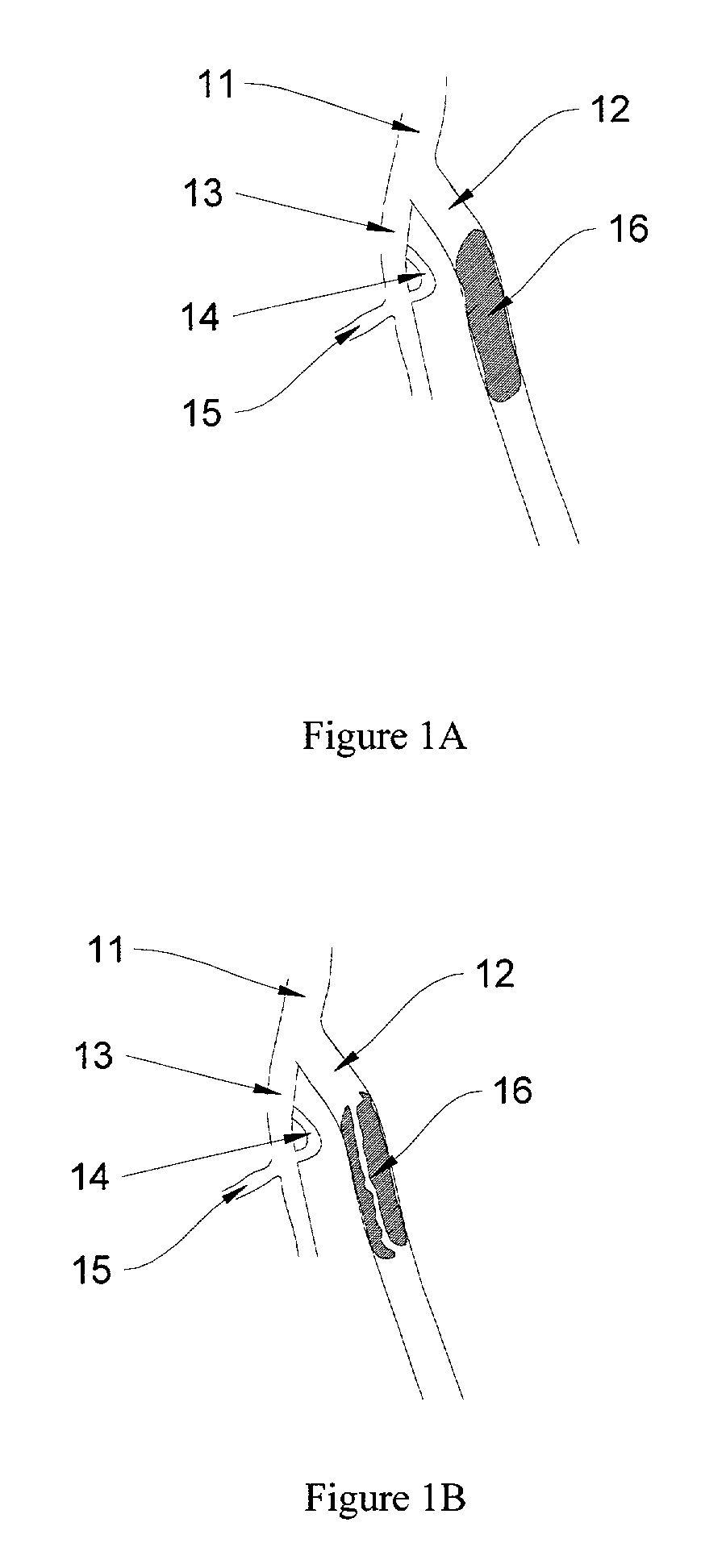Methods for enhancing fluid flow through an obstructed vascular site, and systems and kits for use in practicing the same
a technology of occlusion and fluid flow, applied in the field of vascular disease, can solve problems such as tissue damage, invasiveness, and arteries in which occlusions have been mechanically removed
- Summary
- Abstract
- Description
- Claims
- Application Information
AI Technical Summary
Problems solved by technology
Method used
Image
Examples
example i
In Vitro Cholesterol Dissolution
[0157] A. Introduction:
[0158] In vitro experiments were performed to document the efficacy of cholesterol dissolution using a variety of surfactants.
[0159] B. Methods:
[0160] Dissolution of cholesterol was examined in different solutions of bile salts, non-ionic, and ionic surfactants. Solutions of bile salts were prepared as follows: 0.5% solutions of cholic, dehydrocholic, deoxycholic, lithocholic acids were made by dissolving 0.5grams of the free acid powders in 100 mL H.sub.2O previously adjusted to pH=12 with sodium hydroxide. Solutions were then adjusted to pH=7.5 with HCl. 1% surfactant solutions were made by dilution of concentrated stock solutions: Benzalkonium chloride, nonoxynol-9, sodium dodecyl sulfate, were prepared immediately prior to use. Dissolution studies were performed by adding 0.1 grams cholesterol powdered crystals to 50 mLs of the above surfactants with agitation on a rocker table for 1 hour. Solutions were then examined under ...
example ii
[0165] A. Introduction:
[0166] In vitro experiments were performed to document the efficacy of thrombus removal using the common surfactant sodium dodecyl sulfate.
[0167] B. Methods:
[0168] Fresh cadaveric femoral arteries which contained soft clots partially occluding the. vessel lumen were used. Flow was significantly reduced in all vessel segments prior to treatment with SDS as demonstrated by the inability to inject saline through the vessel using a 25 cc syringe.
[0169] Vessels were treated with a 1% surfactant solution of sodium dodecyl sulfate (SDS, Sigma chemicals), prepared immediately prior to use. Treatment consisted of injection of surfactant through a 35 cc male luer syringe and flow characteristics recorded.
[0170] C. Results:
[0171] SDS was effective in removing soft thrombus from occluded femoral arteries. Flow was reestablished in all samples and segments of clot were visible in the effluent of the flushed vessels. Approximately 60 cc of surfactan...
example iv
Solution Containing Surfactant and Acid Components
[0198] A solution of sodium dodecyl sulfate (SDS) (a.k.a. sodium lauryl sulfate) (1%) and 0.1N hydrochloric acid (pH 1.0) made isotonic (300 mOsmol) with sodium chloride was prepared and compared with a solution of sodium dodecyl sulfate solution (1%). It was found that the sodium dodecyl sulfate solution and the sodium dodecyl sulfate / hydrochloric acid solution adjusted to pH 1.0 formed micelles around cholesterol crystals making the cholesterol crystals water soluble. These results indicate that an detergent / acid combination solution can be used to dissolve / remove both the mineral and organic components of a plaque simultaneously. Addition of the detergent to the hydrochloric acid solution does not affect the ability of the solution to dissolve mineral or the surfactant to dissolve the organic matter by forming micelles. This combination solution can be buffered with sodium bicarbonate (NaHCO.sub.3) in the same manner that the hydr...
PUM
 Login to View More
Login to View More Abstract
Description
Claims
Application Information
 Login to View More
Login to View More - R&D
- Intellectual Property
- Life Sciences
- Materials
- Tech Scout
- Unparalleled Data Quality
- Higher Quality Content
- 60% Fewer Hallucinations
Browse by: Latest US Patents, China's latest patents, Technical Efficacy Thesaurus, Application Domain, Technology Topic, Popular Technical Reports.
© 2025 PatSnap. All rights reserved.Legal|Privacy policy|Modern Slavery Act Transparency Statement|Sitemap|About US| Contact US: help@patsnap.com



